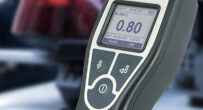Facts about drunk driving and why you need to have a Plan B
What is drink driving?
Simply put, it’s when you’re driving a motor vehicle while under the influence of alcohol. Drinking alcohol has long been a favourite past time for Australians – we’re renowned for it.
Alcohol is a drug, but it’s a socially acceptable one Down Under. Let’s look at sobering drink driving statistics Australia: 51 per cent of NSW drivers have admitted to having drink driven in their lifetime. This means that drink driving has not been conducted by a small percentage of individuals but by more than half of us at some point.
What percentage of car accidents are caused by alcohol in Australia?
In 2022, drunk driving statistics Australia showed that 21 per cent of fatal accidents involved a motorist with a blood alcohol concentration (BAC) of above the legal limit: 0.05. Or more plainly, one in five road deaths involved a BAC .05 or higher.
What is the Australia drink driving limit and what is a BAC?
A Blood Alcohol Concentration (BAC) is a measurement of the amount of alcohol in the body and is measured in grams of alcohol per 100 millilitres of blood.
If you’re on a learners or provisional licence, your BAC should be zero. For almost every other Australian driver, your BAC must be below 0.05. This means that a driver's body must contain less than 50 milligrams of alcohol per 100 millilitres of blood.
In NSW, we have a tiered BAC system. For drivers of Gross Motor Vehicles (GVM) vehicles over 13.9 tonnes, or vehicles carrying dangerous goods, or drivers of public vehicles (taxis/ buses), your BAC limit must be below 0.02.
What affects an individual’s BAC level?
Turns out, lots of things:
The time of day affects the rate at which your body processes alcohol. You tend to burn less energy at night, when your body is ‘winding down’ and drink driving appears to be more common between midnight and 3am.
Your gender, men and women process alcohol at different rates.
Your age factors in too because being older or younger can affect how much alcohol your body can process.
Your weight, size and body fat percentage can influence how quickly your body processes alcohol.
Your health can trip you up – certain conditions and medicines can distort how your body processes alcohol.
Whether or not you have eaten is also a factor because eating may slow down the rate that your body absorbs alcohol, but it won’t guarantee that you’ll be under the limit.
Everyone’s body processes alcohol differently, so your tolerance for alcohol plays its part as well.
For more information, please go to the source of the above: https://www.carsguide.com.au/c...

 Breathalysers
Breathalysers
 Drug Testing
Drug Testing
 Combo Kits & Safety Products
Combo Kits & Safety Products
 Calibration & Services
Calibration & Services
 Stay Current with Our Latest Training Techniques
Stay Current with Our Latest Training Techniques